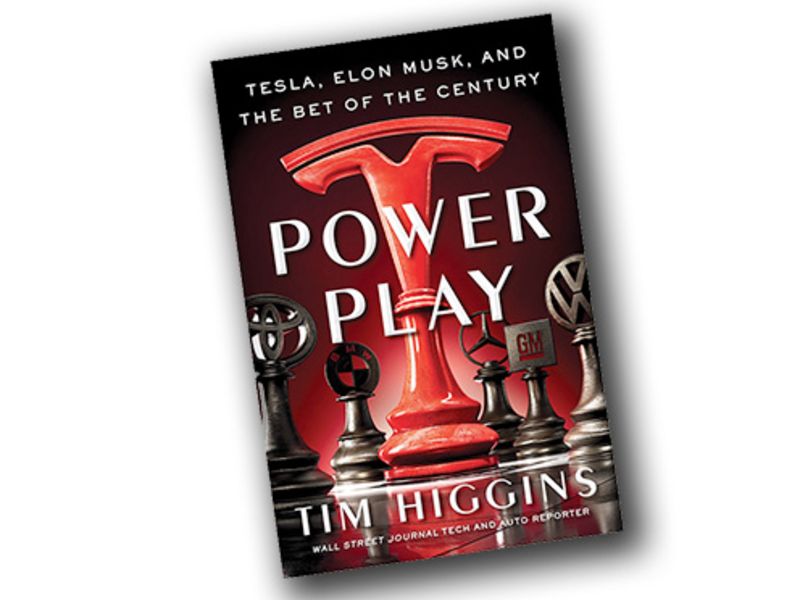
I’m going to spend a f**king billion dollars to overturn the dealer franchise laws in America,” Elon Musk told the esteemed representative of Texas auto dealers, according to the new book Power Play: Tesla, Elon Musk, and the Bet of the Century.
Musk has said the book, by Tim Higgins, is both false and boring. I’m dubious of the former: Higgins is a friend of mine — we worked together at the Detroit Free Press and at Bloomberg News. He’s also a meticulous reporter and careful writer. Most certainly, it is not boring.
It chronicles Musk’s amazing rise, his unbelievable tolerance for risk, his arrogance, his success against the odds and his own poor choices. Having lived through so many years of the Tesla roller coaster, it helps to have someone write it all down so it can all be sorted out.
Much of the attention in the general business press is about another F-bomb anecdote, in which Apple contemplated buying Tesla, but Musk insisted on being CEO of the combined company and Tim Cook told him no … using a two-word sentence ending with “you,” according to people familiar with Musk’s telling of the story.
His desire for Tesla to be as valuable and respected as Apple has long been clear, as has his resistance to conformance in any form — especially when it comes to the automaker’s retail strategy.
Musk wanted Tesla stores to look and feel like an Apple store: modern, lean, nonthreatening. So he hired George Blankenship, who worked with Steve Jobs on Apple’s retail concept and execution.
Realizing that experience was what most quickly sparked enthusiasm, Tesla focused early sales efforts on test drive events and follow-up calls.
When it couldn’t deliver vehicles fast enough, it sent workers from headquarters out into the field — and Musk even called on existing customers to volunteer and help explain features to new owners.
Amazingly, they did. The devotion of fans to the brand is real — not just a Twitter phenomenon of ditto-heads who attack any comment that is less than 100 percent praiseful.
The book is rich with details about how Musk managed to surprise industry players and investors alike with his relentless demands for underlings to come up with ways to meet his seemingly impossible goals — as well as people he fired or pushed out who tried to tell him what couldn’t be done.
For anyone involved in selling cars, there are good business lessons and bad ones.
The battle over Texas, though, might reveal the most about his retail disruption.
Bill Wolters, the longtime president of the Texas Automobile Dealers Association, went to California to try to sell Musk on the benefits of the franchise system: ready buyers in good times and bad, capable service departments, pillars of the community.
Musk wasn’t interested. Moreover, he felt that Wolters was insinuating that Musk, who was born in South Africa, was un-American in his retail approach, which Wolters denies. But Musk ordered him off the property in another profanity-laced tirade.
Musk and Blankenship found a way around Texas’ prohibition on automakers owning stores in the state: Opening only “galleries” where shoppers could learn about the cars. If they wanted to buy, they would have to do so by phone or online, without the assistance of an in-person sales associate.
But when Musk came back to Texas to try to get the laws changed, the seemingly irresistible force met an immovable object. Texas dealers outspent Tesla 2-to-1 and hired three times as many lobbyists — on top of the $2.5 million dealers had donated to legislative campaigns. The bill Tesla wanted made it out of committee but no further.
Since then Tesla has gone on to become the world’s most valuable automaker, and dozens of imitators have emerged.
Whether they will have Tesla’s brand cachet and devoted fans remains to be seen, but they’re all armed with its road map for selling directly to consumers without franchise dealers.
Musk may not have spent a billion dollars or overturned America’s franchise laws, but he certainly found vulnerabilities and exploited them. A power play, indeed.

